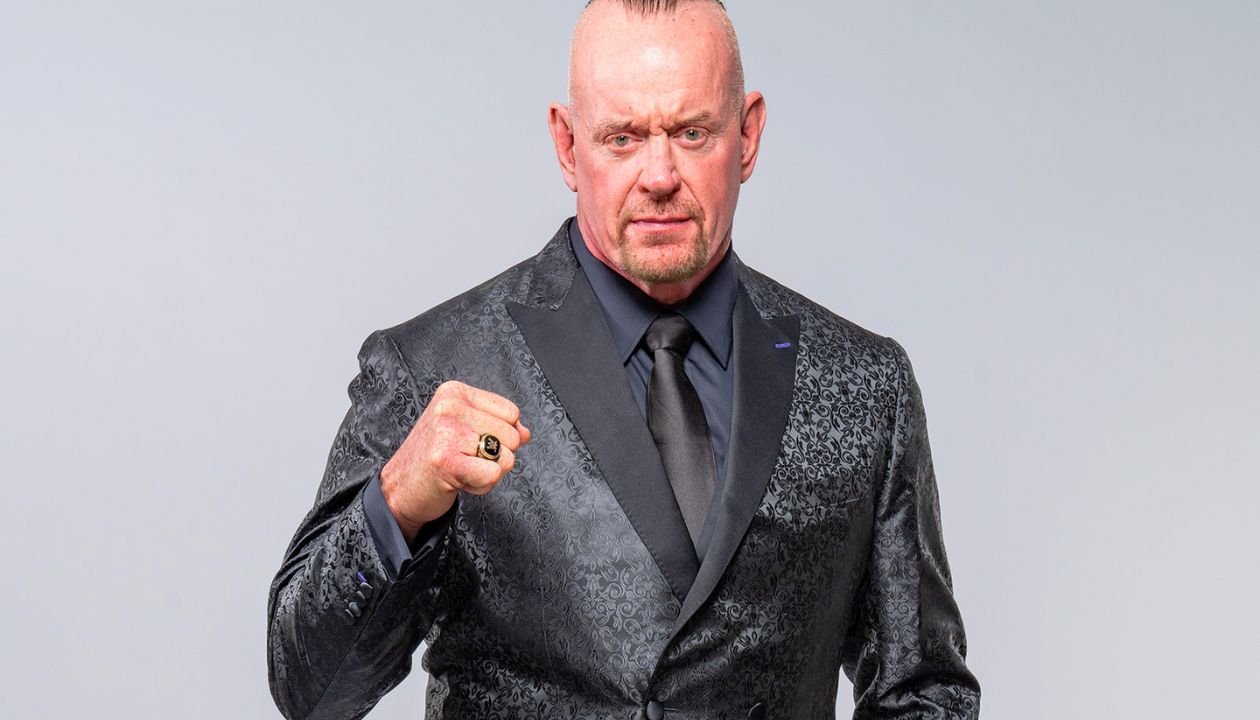After Entering WrestleMania, Vince Russo Talks About His Tension With The Undertaker
Relationships between performers and backstage staff in the professional wrestling industry frequently function behind closed doors, with miscommunications and unspoken conflicts potentially erupting years later. During WWE’s Attitude Era, Vince Russo was a crucial creative force. He recently talked about a schism that left him badly affected: his unanticipated falling out with The Undertaker.
Unexpected Disclosure: Finding the Rift
In an open discussion on “WrestlingInc’s Nuclear Heat,” Vince Russo recalled the startling moment he discovered there was friction between The Undertaker and himself. Russo was shocked to hear the news because he had always admired the renowned wrestler and thought they had a strong working connection. Nevertheless, Terry Taylor, a mutual acquaintance, rather than The Undertaker himself, revealed this schism.
Russo said in the interview, “I found out through Terry Taylor that I had a little bit of heat with Taker,” his voice still laced with shock. To Russo, it was shocking and depressing to think that one of the most admired individuals in WWE felt badly about him.
The Source of the Tension: Expectations and Injuries
Russo said that Taylor had described the root of the problem to him, stating that The Undertaker believed Russo had forced him to work while injured, a statement that deeply wounded Russo’s regard for the Deadman.
“He told me he always asked him to work when he was hurt,” Terry stated to me. When he was hurt, you used to count on him to report to work. Recounting, Russo appeared visibly disturbed by the charge.
Russo had emotional difficulty after learning this information. Russo had the utmost respect for The Undertaker, a character in the wrestling world who was known for his toughness, loyalty, and respectability. Considering how much he respected The Undertaker, he found it hard to accept the possibility that he may have added to the wrestler’s physical burden.
“I was hurt by that.” Above all, The Undertaker was someone I respected. Russo remarked, “I would never in my wildest dreams ask somebody to work a match if they were hurt,” with a clear sadness in his voice.
Russo’s Defense: Ignorance and Inadequate Communication
Russo argued in his defense that at the time he was not aware of The Undertaker’s injuries. Communication breakdowns are typical in the fast-paced and frequently chaotic world of professional wrestling, and it appears that this may have been one of those instances.
Russo confirmed, saying, “With all due respect, Taker never told me he was hurt.” He emphasized that he would never have insisted on The Undertaker performing if he had known about the injuries.
This claim highlights a larger problem in the wrestling business, which is that wrestlers frequently suffer injuries without telling those in authority because of a sense of obligation or a fear of losing their position. Russo’s remarks draw attention to the fine line that must be drawn in the high-stakes world of WWE between protecting a wrestler’s well-being and honoring their toughness.
The Undertaker: An Icon of Fortitude
The Undertaker’s remarkable tenacity and commitment to the industry form the foundation of his legend. Throughout his lengthy career, he gained recognition for his capacity to give his best on the field, especially in the face of severe physical difficulties. This dedication to his work probably added to the stress he experienced at the time Russo mentioned.
However, the idea that The Undertaker would be bitter over Russo’s artistic choices illustrates the nuanced dynamics that exist within the WWE. Professional wrestlers such as The Undertaker, who devoted their entire career to the business, might have felt undervalued or misinterpreted by those in charge of their professional paths.
A More Comprehensive Analysis of Wrestling Culture
Russo’s admission provides a window into the often brutal reality of the professional wrestling world, where it can be difficult to distinguish between personal and professional connections and where the pressures of the industry can occasionally result in inadvertent harm. It serves as a reminder that real people with real emotions and problems exist behind the fantastical identities displayed in the ring.
For a very long time, the wrestling business has been known for its rough culture, wherein injuries are accepted as commonplace and wrestlers are frequently under pressure to perform even when they are physically hurt. Russo’s involvement with The Undertaker highlights the need for open communication between talent and management as well as the possible drawbacks of this way of thinking.
From The Rock’s Perspective: Differing Reactions
It’s interesting to note that The Undertaker may have been frustrated by Russo’s exit from WWE, but The Rock, another prominent figure of the time, responded much differently. Russo also discussed The Rock’s response to his choice to go to WCW, one of the greatest stars in WWE.
“The Rock expressed his happiness for me upon my departure from WWE to join WCW,” Russo revealed, adding that The Rock was aware of the nature of the wrestling industry and the fact that people quit all the time. “He expressed his happiness that I chose what was best for my family and myself.”
The Undertaker and The Rock’s sharply different responses demonstrate the variety of ways in which wrestlers interpret the choices made by people in their immediate vicinity. The Undertaker may have perceived Russo’s exit as a betrayal or a loss, made worse by the physical strain Russo’s leaving caused him. The Rock, on the other hand, considered Russo’s departure as a normal part of the business.
A Thought on Relationships and Respect
In professional wrestling, Vince Russo’s account of his falling out with The Undertaker serves as a sad lesson of the need of communication and respect. It also bears witness to the strong emotional bonds that develop between those in the field, bonds that can occasionally be a cause of conflict as well as strength.
In Russo’s illustrious career, the event is a bittersweet chapter that serves as a reminder that connections and feelings between those who create the spectacle are genuine, even in a world where rivalries and plots are contrived.
The lessons Russo learned from working with The Undertaker will hopefully help future generations of talent and management navigate the ever-changing world of professional wrestling. These lessons center on the importance of mutual respect, understanding, and open communication in an industry that asks so much of those who devote their lives to it.




